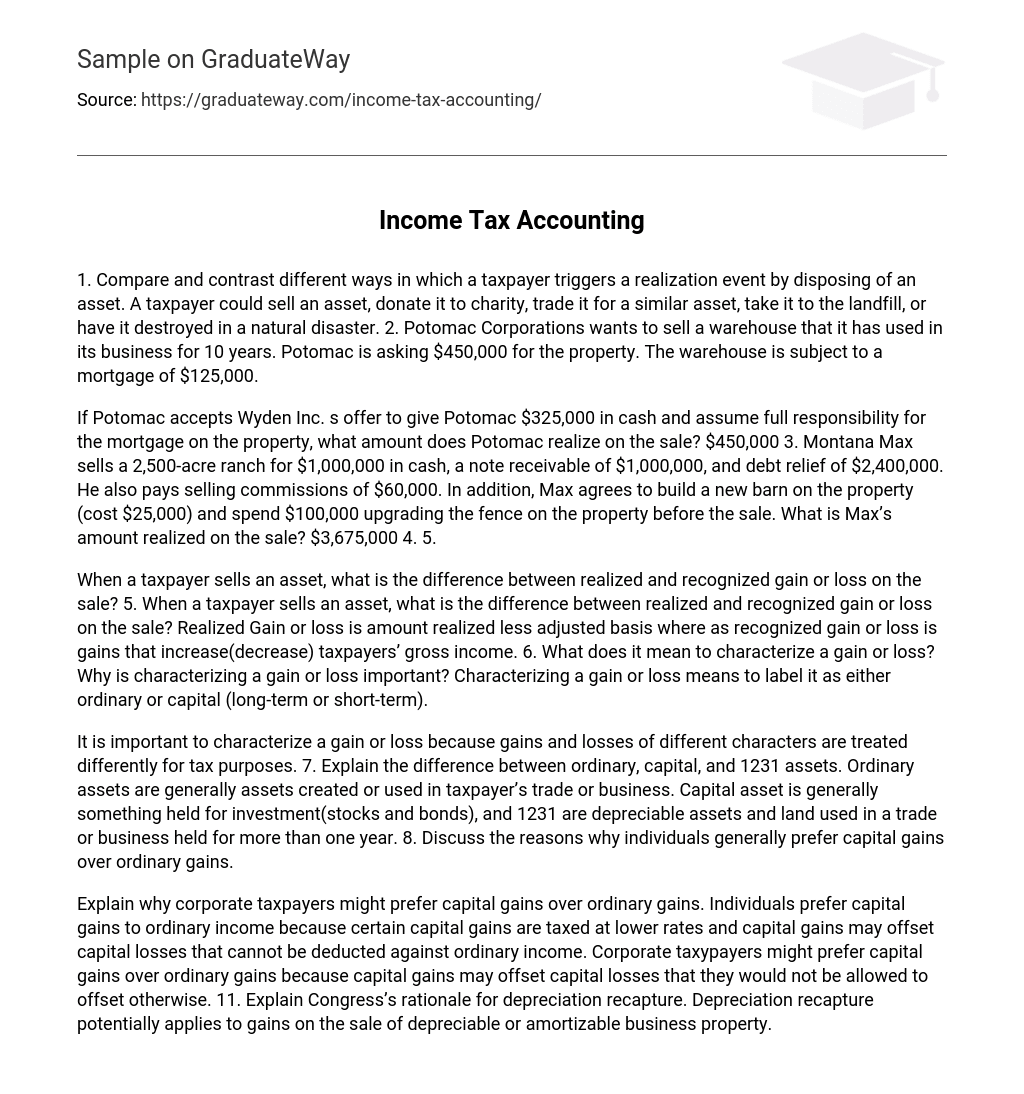1. Compare and contrast different ways in which a taxpayer triggers a realization event by disposing of an asset. A taxpayer could sell an asset, donate it to charity, trade it for a similar asset, take it to the landfill, or have it destroyed in a natural disaster. 2. Potomac Corporations wants to sell a warehouse that it has used in its business for 10 years. Potomac is asking $450,000 for the property. The warehouse is subject to a mortgage of $125,000.
If Potomac accepts Wyden Inc. s offer to give Potomac $325,000 in cash and assume full responsibility for the mortgage on the property, what amount does Potomac realize on the sale? $450,000 3. Montana Max sells a 2,500-acre ranch for $1,000,000 in cash, a note receivable of $1,000,000, and debt relief of $2,400,000. He also pays selling commissions of $60,000. In addition, Max agrees to build a new barn on the property (cost $25,000) and spend $100,000 upgrading the fence on the property before the sale. What is Max’s amount realized on the sale? $3,675,000 4. 5.
When a taxpayer sells an asset, what is the difference between realized and recognized gain or loss on the sale? 5. When a taxpayer sells an asset, what is the difference between realized and recognized gain or loss on the sale? Realized Gain or loss is amount realized less adjusted basis where as recognized gain or loss is gains that increase(decrease) taxpayers’ gross income. 6. What does it mean to characterize a gain or loss? Why is characterizing a gain or loss important? Characterizing a gain or loss means to label it as either ordinary or capital (long-term or short-term).
It is important to characterize a gain or loss because gains and losses of different characters are treated differently for tax purposes. 7. Explain the difference between ordinary, capital, and 1231 assets. Ordinary assets are generally assets created or used in taxpayer’s trade or business. Capital asset is generally something held for investment(stocks and bonds), and 1231 are depreciable assets and land used in a trade or business held for more than one year. 8. Discuss the reasons why individuals generally prefer capital gains over ordinary gains.
Explain why corporate taxpayers might prefer capital gains over ordinary gains. Individuals prefer capital gains to ordinary income because certain capital gains are taxed at lower rates and capital gains may offset capital losses that cannot be deducted against ordinary income. Corporate taxypayers might prefer capital gains over ordinary gains because capital gains may offset capital losses that they would not be allowed to offset otherwise. 11. Explain Congress’s rationale for depreciation recapture. Depreciation recapture potentially applies to gains on the sale of depreciable or amortizable business property.





